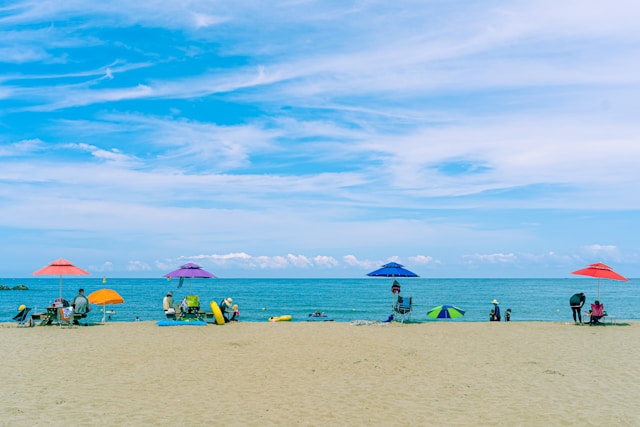Maximizing the benefits of holidays for mental health
5 min read
Depression
Anxiety
Burnout
Sleep
Couple
Well-being

Make a Difference

Do you find Alohadoo helpful ?
Help us ❤️ continue offering free services !
I subscribe
I make a donation
Holidays are a break from the daily grind; they are an essential aspect of maintaining and improving mental health. Well-planned holidays can significantly reduce stress, boost mood, and enhance overall well-being.
Importance of holidays
The role of breaks in mental health
- Stress reduction: regular breaks from routine work can reduce stress levels and prevent burnout.
- Improved mood: vacations provide a change of scenery and activities, which can improve mood and decrease anxiety.
- Enhanced creativity: stepping away from everyday responsibilities can refresh the mind, leading to increased creativity and problem-solving skills.
Psychological benefits of travel
- Exposure to new experiences: traveling exposes individuals to new cultures, foods, and environments, broadening perspectives and fostering a sense of adventure.
- Building resilience: navigating new places and experiences can build resilience and adaptability, key components of mental health.
Planning the perfect holiday for mental health
Selecting the right destination
- Personal interests: choose destinations that align with personal interests and preferences, whether it's a relaxing beach, a cultural city, or an adventurous mountain retreat.
- Proximity and accessibility: consider the travel time and ease of getting to the destination.
- Mental health-friendly destinations: some places are renowned for their calming atmosphere and wellness-focused activities, such as spa resorts, yoga retreats, or nature parks.
Timing and duration
- Optimal timing: plan holidays during periods of high stress or after completing major projects to maximize the restorative benefits.
- Ideal duration: research suggests that the ideal vacation length for health benefits is around 8 days. Shorter trips may not provide enough time to fully relax.
Activities and itinerary planning
Balancing activity and relaxation
- Mix of activities: incorporate a balance of activities that excite and relax. This might include sightseeing, physical activities like hiking or swimming, and ample downtime for rest.
- Mindfulness and wellness practices: engage in activities that promote mindfulness and relaxation, such as yoga, meditation, or spa treatments.
Social interaction and solitude
- Quality time with loved ones: spend meaningful time with family and friends to strengthen relationships and build support systems.
- Personal time: ensure there is time set aside for personal